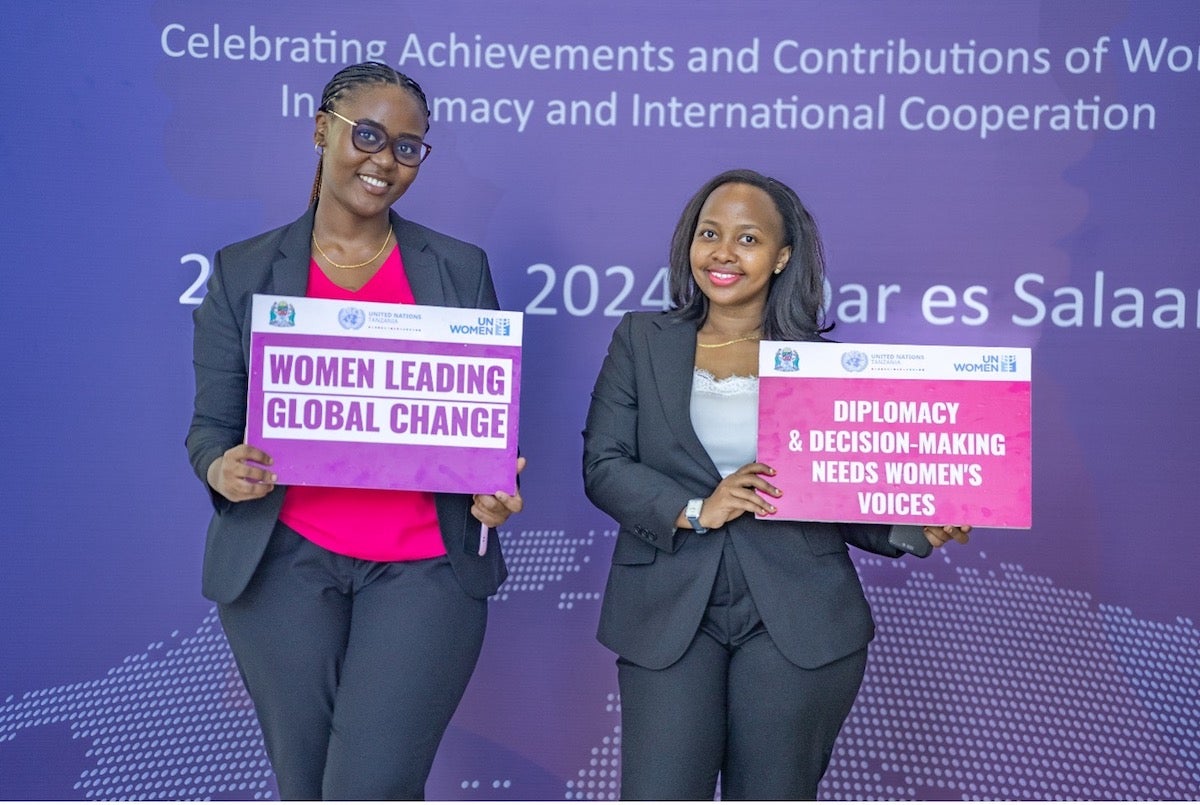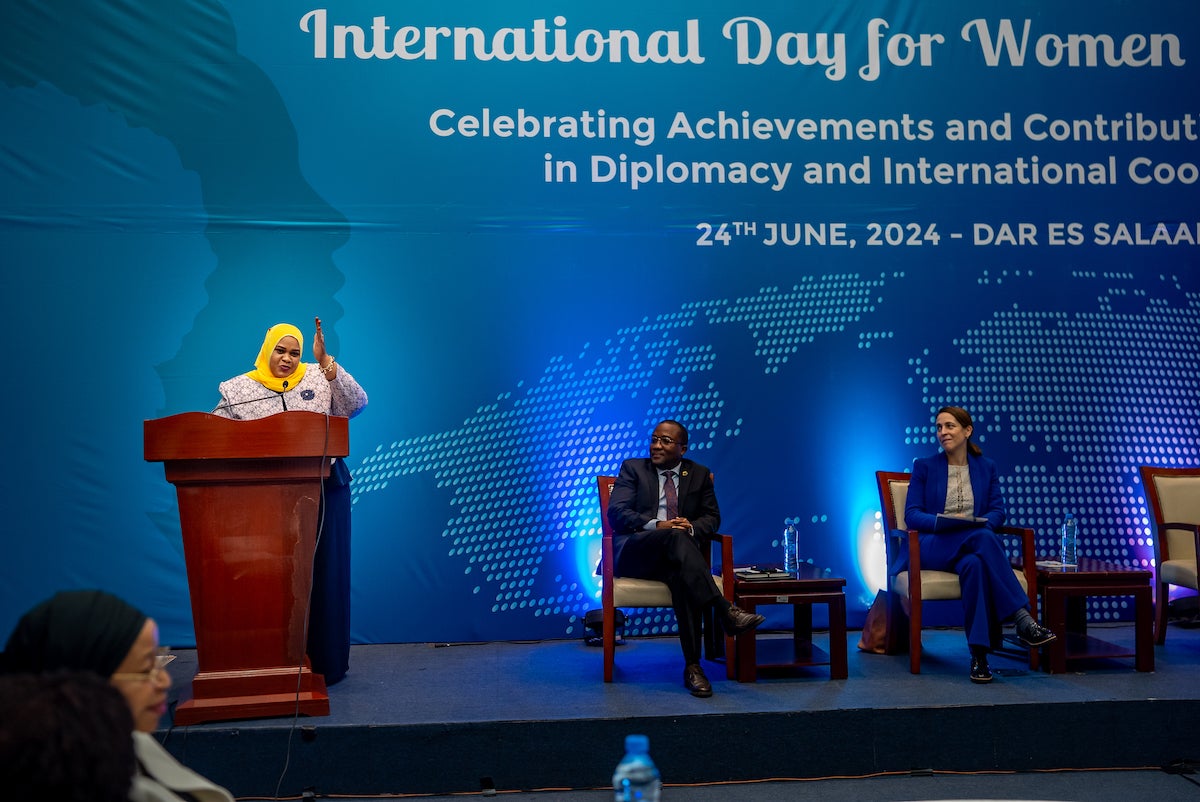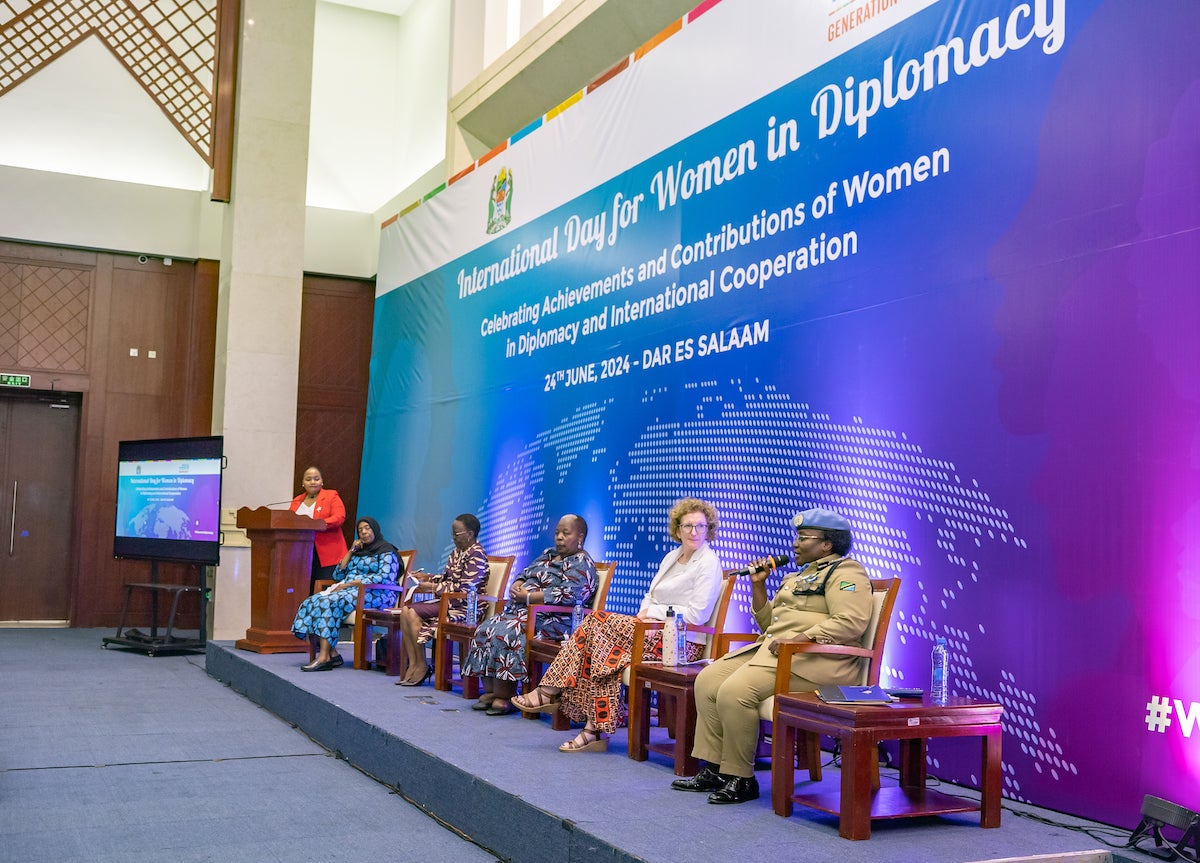Tanzania hosts intergenerational dialogue for the International Day for Women in Diplomacy
Date:

In celebration of the International Day for Women in Diplomacy, Tanzania hosted an intergenerational dialogue in Dar es Salaam to foster collaboration and knowledge sharing among women leaders of all ages. Organized by the Ministry of Foreign Affairs and East African Cooperation (MoFAEAC) and UN Women, the event brought together over 100 seasoned diplomats, emerging leaders, and youth activists to discuss the vital role of women in diplomacy and international relations.
“This is the first-ever commemoration in Tanzania since the United Nations General Assembly proclaimed June 24th as the International Day of Women in Diplomacy in June 2022,” said Ambassador Said S. Mussa, Deputy Permanent Secretary, on behalf of the Minister for Foreign Affairs and East African Cooperation, Hon. January Makamba.
He added that the event serves as a platform not only to celebrate the achievements of women on the world stage but also for stakeholders to recommit to a future where everyone enjoys equal opportunities at all levels of decision-making.
Today, Tanzania is one of only 27 countries where a woman serves as Head of State or Government, with Her Excellency President Samia Suluhu Hassan. Tanzania has also made considerable progress in advancing women’s leadership and participation in decision-making at various levels. Currently, 37.5 per cent of ministers in mainland Tanzania are women, 37.4 per cent of parliamentarians are women, 37.8 per cent of judges are women, and 24 per cent of Tanzanian embassies and missions are headed by women.
“These are not mere numbers - they represent the tangible progress made by the Tanzanian Government in ensuring that women have a seat at the table where decisions shaping our nation and the world are made,” said Ambassador Mussa.
While opening the event, Zanzibar’s Minister for Community Development, Gender, Elders and Children, Hon. Riziki Pembe Juma, emphasized the critical need for women’s full and meaningful representation in all aspects of diplomacy and decision-making, stating that in a field requiring diverse skills, including negotiation, communication, and cultural sensitivity, women - with their unique perspectives and approaches - have significantly enriched diplomatic efforts worldwide.

Minister Juma acknowledged that although work remains to achieve gender parity, the governments of the United Republic of Tanzania and Zanzibar remain committed to collaborating with all stakeholders to realize these aspirations and address barriers to gender equality, including gender-based violence, discrimination, and unequal access to resources. “The government will continue to strengthen policies that protect and promote the rights of women and girls, fostering an environment where they can thrive,” she emphasized, and called upon actors to support and mentor the next generation of women leaders, challenge stereotypes, and advocate for policies that promote gender equality.
UN Women Tanzania Deputy Representative, Katherine Gifford, highlighted that as the world continues to face global challenges, the contributions of women in diplomacy are more critical than ever. “When women have a seat at the table, the likelihood of reducing instability and conflict rises significantly, and peace agreements last longer,” she said.
“Today’s complex societal challenges – from climate change to pandemics, human rights violations, conflicts, and economic challenges – cannot be resolved unless women leaders are equally represented, and gender equality principles integrated into all efforts towards sustainable solutions.”
Beyond commemorating the International Day for Women in Diplomacy, the event provided a crucial platform to reflect on the unique challenges women face in the field and how to build inclusive environments to support and empower women to rise to leadership positions while ensuring sustained investments in women’s empowerment, with a strong focus on young women.
Participants also engaged in interactive panel discussions where young women aspiring to careers in diplomacy had the chance to learn from the experiences of seasoned diplomats including the Secretary-General of the Fourth UN World Conference on Women held in Beijing in 1995, Gertrude Mongella, former Minister of Foreign Affairs and first Executive Secretary of the International Conference on the Great Lakes Region, Ambassador Liberata Mulamula, and former Minister of State for Foreign Affairs and African Union Ambassador to the United States, Ambassador Amina Salum, to gain insights into navigating the complexities of international relations.

Discussions also drew from the experiences of other countries, such as Ireland, which have achieved parity levels.
“Just last year, 55 per cent of Ireland’s ambassadors were women,” said Mags Gaynor, Head of Cooperation for the Embassy of Ireland in Tanzania. “It takes time, but it’s possible.”
Closing out the event, Director for Multilateral Relations at MoFAEAC, Ambassador Noel Kaganda, recited a poem he penned himself, sharing a message of hope towards ensuring a future where everyone enjoys equal opportunities in all spheres:
“Despite centuries of neglect,
Women are steadily but surely coming to the fore,
To take their rightful place.
And here I dare to say,
There is no diplomacy without she,
Just as diplomacy wouldn’t exist without he.”